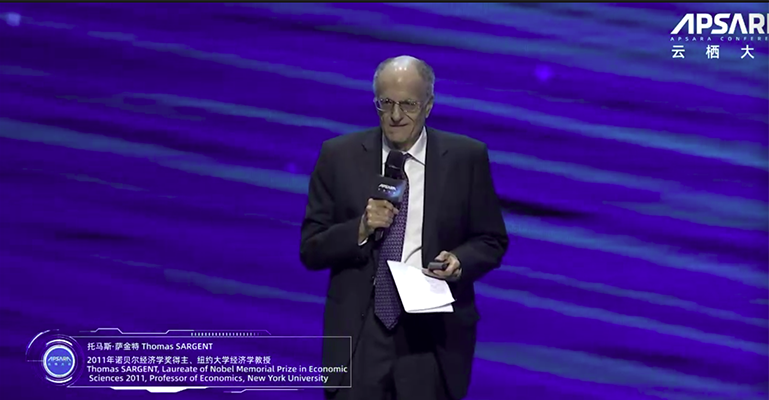
On the morning of September 25, 2019 Yunqi Conference kicked off in Hangzhou, a science and technology conference that was difficult to obtain, and more than 1,000 scientists and technology leaders brought cutting-edge technology to share. They not only interpret the opportunities and challenges brought by the digital economy from the perspective of business, technology, finance, etc., but also through the two unique perspectives of future technological trends and economics.
Thomas J. Sargent, the 2011 Nobel Laureate in Economics and Professor of economics at New York University, was invited to speak at the conference about the nature of the data economy and insights into its development.
Thomas Sargent first quoted the famous mathematician and physicist Henri Poincare's famous quote: Mathematics is the art of giving different things the same name.
This is the essence of mathematics, and the essence of economics, he believes, can be expressed in two sentences: the insights of economic analysis come from giving different things the same name, and economics hopes to identify common underlying forces, causes, and solutions.

Thomas Sargent mentioned that there are five "old" things "new" to do in the digital economy, including communication networks, exchange of goods, smart contracts and trust, anti-fraud and anti-counterfeiting, and payments.
AI is both old and new, relying on mathematical statistics and handwritten records, and now computers are increasingly powerful and cheap, with huge data sets.
Thomas Sargent believes that the best driving force for China's economic development in the past 70 years has been trade, because trade has changed the division of labor and allowed professional people to do professional things. The more trade there is, the more specialization there is. But at the same time, trade also has natural enemies, geographical areas, people are not fully connected, there are certain barriers to communication, challenges to trade and specialization, the need to know about adversaries, all of which are barriers to trade.
That's why big data and AI are revolutionizing us. The essence of the digital economy is to do old things new, with digital means to lower and lower the cost, the efficiency becomes more and more improved.
Thomas Sargent believes that the new frontiers or new trends arising in the future of the digital age include: first, digital currency; Ii. Global digital economy; Three: Digital platform governance.